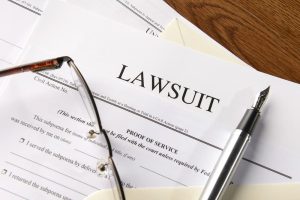 One of the early steps in a civil suit is the discovery phase, which gives both parties to the suit access to evidence, testimony, and insight that can be helpful in subsequent stages of the case. Understanding how the discovery phase works can help you feel more prepared if your claim is heading to court.
One of the early steps in a civil suit is the discovery phase, which gives both parties to the suit access to evidence, testimony, and insight that can be helpful in subsequent stages of the case. Understanding how the discovery phase works can help you feel more prepared if your claim is heading to court.
If you were injured in an accident that was not your fault, you deserve compensation for your losses. Compensation could cover expenses, such as medical bills, lost wages due to missed time at work, and property damage. The money can also cover non-economic losses, such as physical and psychological pain and suffering.
Most people who file a successful claim receive their compensation through a negotiated settlement with the at-fault party and their insurance company. However, sometimes negotiations do not work. In such situations, the only way to receive compensation is to take the at-fault party to court in a lawsuit. If your case becomes a lawsuit, it will go through discovery.
Read more: How Much To Ask For In A Personal Injury Settlement
What Happens in the Discovery Phase of a Lawsuit?
In the discovery phase, both sides request information and documentation about the case from each other. This phase occurs after you and your legal team file a lawsuit and the at-fault party responds to your complaint. Discovery is a formal process that the court oversees. It allows your legal team to assess the defendant’s legal strategy as they prepare for the trial.
During this process, legal teams may choose to employ several various tools and tactics, including:
- Depositions – A deposition is a formal interview in which an attorney questions a witness under oath. At the same time, a court reporter records the questions and responses for later transcription into a written document.
- Requests for Admissions – This is a written means by which an attorney may ask the opposing party to admit facts related to the incident.
- Requests for Production – An attorney may ask the opposing party to produce documents and physical evidence.
- Interrogatories – Interrogatories are a series of written questions an attorney may send to an opposing party. Answers to these questions can help them understand the facts and circumstances of the accident and any legal claims made.
How Long Is the Discovery Phase in a Lawsuit?
The length of the discovery phase will vary from case to case. Generally, the judge overseeing the case will issue a scheduling order that sets deadlines for discovery and other stages of litigation. It is vital to ensure that you meet these deadlines. Failing to do so can have serious negative consequences for your lawsuit. Having an experienced attorney on your side will help you to navigate these kinds of procedural rules.
What Happens After the Discovery Phase in a Lawsuit?
 By the end of the discovery phase, the legal teams on both sides should fully understand the evidence that each will present at the trial. In some instances, this can change how the parties involved view their chances of success in the case.
By the end of the discovery phase, the legal teams on both sides should fully understand the evidence that each will present at the trial. In some instances, this can change how the parties involved view their chances of success in the case.
In many cases, the judge will require the parties to attend mediation before trial. Mediation allows both sides to communicate through a neutral third party, sometimes resulting in a settlement before the costly and time-consuming trial process begins.
The case will proceed to trial if mediation does not lead to a settlement.
A trial may involve:
- Motions from both sides that may affect the admissible evidence
- Jury selection
- Opening statements from both sides
- Direct examinations and cross-examinations of witnesses
- Closing arguments
- Jury deliberation and verdict
After a verdict has been handed down, either side may also have the opportunity to appeal. Appeals can be incredibly costly and may last several years.
Contact a Personal Injury Lawyer From Hankey Marks & Crider in Indianapolis
Taking your personal injury claim to trial is a serious matter that requires a thorough knowledge of the law. If you intend to file a lawsuit against the party responsible for your injuries, you need a legal team with experience, skill, and knowledge on your side.
The seasoned personal injury attorneys of Hankey Marks & Crider have more than 80 years of combined experience successfully representing injured people in Indianapolis and beyond. Our lawyers are ready to represent you.
Call us today at (317) 634-8565 or contact us online for a free consultation and find out what your legal options are.

